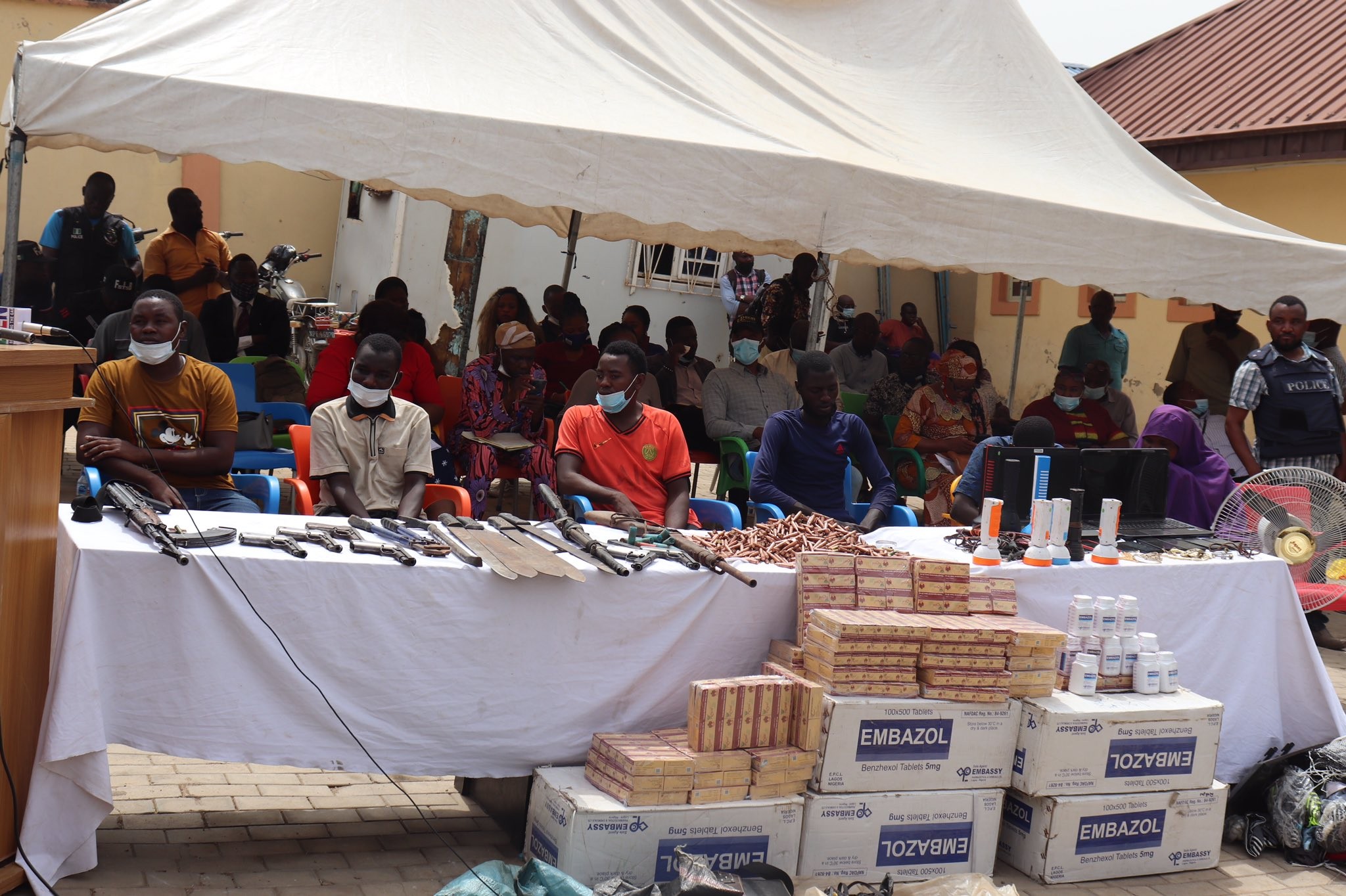 Weapons collection to address armed banditry | Nigeria Police Force
Weapons collection to address armed banditry | Nigeria Police Force
Combating Banditry in Northwest Nigeria
The harrowing abduction of 276 schoolgirls in Chibok by the Islamist militant group Boko Haram in 2014 shocked the world. The number of children kidnapped, as well as the ease with which Boko Haram carried out its attack, was striking and sparked international outrage. Yet, a recent wave of mass school abductions makes the Chibok girls’ experience less of an anomaly. In the past three months, more than 800 children have been taken in mass abductions at four boarding schools in northwest Nigeria, far from Boko Haram’s territory in the northeast. The new culprits? Bandits.
Populations in northwest Nigeria are facing the ever increasing threat of banditry, a type of organized crime that includes kidnapping, armed robbery, murder, rape, cattle-rustling, and the exploitation of environmental resources. Armed banditry has become a central security challenge to Nigeria’s northwest that has terrorized communities, killed and displaced thousands, hindered socio-economic development, and threatened democratic governance.
Origins and Driving Factors
In 2011 northwest Nigeria experienced a surge in bandit attacks between the nomadic Fulani herders and sedentary Hausa farming communities. Environmental and ecological changes caused land and water to become valuable commodities, sparking fierce, and often violent, competition over resources. Over the past decade banditry has evolved from a communal rivalry into lethal militia groups.
Banditry has become an appealing method of income in northwest Nigeria where weak governance, youth unemployment, poverty, and inequality have left people with depleted options for livelihood. Security services are often understaffed and lack the proper resources to effectively combat banditry. Vast areas of unregulated forests allow for easy concealment, and police and military forces have difficulty penetrating the rough terrain. In addition, under-policed borders have aided the proliferation of small arms and light weapons amongst bandit groups.
Humanitarian Consequences
The rise of banditry and armed attacks has severely disrupted means of livelihood and the distribution of essential services for people across the northwest region. Since 2011, nearly 200,000 people have fled bandit violence and remain internally displaced within the northwest region. Approximately 77,000 Nigerians have fled to neighboring countries, and humanitarian efforts to respond to emergencies in Nigeria as well as crises in neighboring Sahel and Lake Chad are overstretched. The majority of those displaced do not receive organized assistance and are in desperate need of basic necessities.
The Jihadist terrorist organization, Boko Haram, aims to expand its base beyond northeast Nigeria and has begun forming alliances with bandit groups in the northeast. Boko Haram faction leader Abubakar Shekau claimed responsibility for the mass abduction of over 300 school boys in Kankara, though bandits were likely responsible for the attack and may have transferred some of the kidnapped schoolboys to Boko Haram in return for money or weapons. This concerning alliance between violent extremist and criminal groups has escalated security problems and expanded the capabilities of non-state actors across the country.
Security Response
Informal security actors such as vigilantes have played an increasing role in protecting their communities from bandit groups. Vigilante groups are often preferred over the police because official security agencies are often unavailable when rural communities most need them. Although these informal security providers play essential roles in providing safety and security to their communities, many lack proper security training and often compete against each other. In addition, many vigilante groups have committed human rights abuses, armed robbery, corruption, and extortion against bandits and members of the communities they vow to protect.
Nigerian security forces have utilized a variety of tactics over the years to combat banditry. Initially, the federal government embraced an aggressive approach by deploying police and military operations to the states of Zamfara, Katsina, Kaduna, Niger, and Sokoto. While the security response has pushed back attacks, destroyed hideouts, and killed and arrested hundreds of bandits, attacks have continued. In 2019, a peace deal was secured between the armed bandits and the governors of Katsina, Sokoto, and Zamfara. The deal encompassed disarmament, the release of kidnapped civilians, and pardoning for the bandits. Although the number of fatalities decreased from August to November due to reconciliation initiatives, attacks picked up again in 2020.
Though routinely denied, the Nigerian federal and state authorities have often paid ransom to keep victims alive and secure their release. Mass kidnappings have become a major source of income for criminal and extremist groups since Nigerian authorities often pay ransom to keep victims alive and secure their release, but it also provides incentive for bandits to continue their malign activities.
Effective mechanisms must be implemented to mitigate the threat of banditry in Nigeria’s northwest. A peacebuilding process that includes dialogue between security agencies and communities will be crucial to establishing effective policing, early warning, and intelligence gathering. The federal government must increase funding for police and security forces to effectively oversee rural areas, control cross-border arms proliferation, and strengthen intelligence capabilities. In addition, addressing the root problems that often drive people to violence — inequality, poverty, lack of education and job opportunities — is needed to stem the recruitment of youth into bandit groups.






